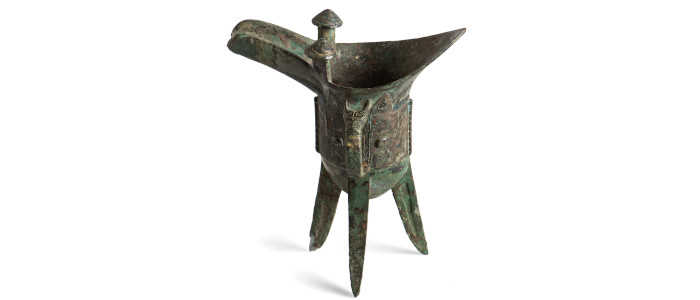Ritual Bronze Vessels and Cultural Memory in Ancient and Modern China
Published: 29 October 2018
4.30pm Friday 2 November 2018In this public lecture, Dr Maria Khayutina of the University of Munich will explore the significance of ancient bronzes throughout Chinese history.

Presenter: Dr Maria Khayutina, University of Munich
Date: Friday 2 November 2018
Time: 16:30 - 17:30
Venue: Riverside Museum, Glasgow Museums
Website: https://www.glasgowlife.org.uk/event/2/burrells-bronzes-under-the-spotlight
China is rightly proud of its long history and cultural achievements. Already four thousand years ago, China had populous cities with palaces for rulers who displayed their power and wealth during sacrificial feasts, wedding ceremonies and funeral rituals. Entering the Bronze Age, early Chinese elites used the benefits of new technologies to enhance their ritual equipment – vessels for alcoholic beverages and viands – by having them cast in composite ceramic molds. After the invention of writing, such vessels were frequently inscribed with the names of aristocratic families and dedications to ancestors. In the course of time, inscriptions on ritual vessels – and, gradually, bells – grew in length, describing the achievements of individual noblemen and commemorating favors that they had received from kings and other overlords. Kept in ancestral temples, such objects became repositories for the memories of aristocratic lineages.
As ancient palaces and temples were destroyed and plundered in wars between early Chinese principalities or in foreign invasions, some bronze objects survived in storage pits and tombs. In China’s imperial period, such excavated antiques were highly valued as the only tangible evidence of the days of old, a link to the Golden Age and fountainhead of Chinese civilization. Hence, bronze vessels became an integral part of Chinese “cultural memory” – the totality of ways and media used by a society to remember a shared past.
This presentation will include a brief outline of early Chinese history and society to elucidate the making and use of bronze vessels in ancient China. Taking into consideration the many splendid examples of imperial craftsmanship in the Burrell Collection, it will explain why medieval and early modern Chinese rulers and intellectuals let themselves become infected by an antiquarian “bronze fever.” Ultimately, it will give an insight into the manifold roles that ancient bronze vessels play in China today.
This event is hosted by Glasgow Museums and supported by the Confucius Institute, University of Glasgow.
Free, but booking essential: burrellbronzes@gmail.com
First published: 29 October 2018

